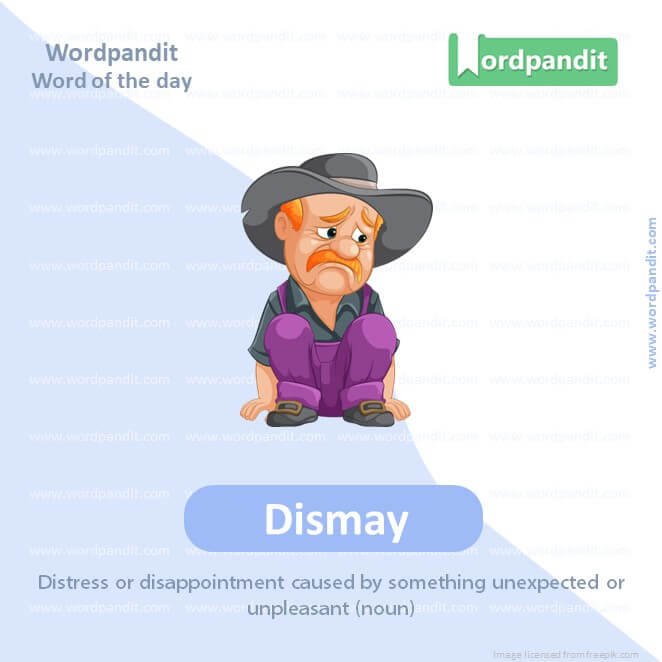Daily Vocabulary Words: List of Daily Used Words in Leading Indian Newspapers
Hi there. Welcome to this special section @ Wordpandit. Our endeavour here is straightforward: highlighting daily vocabulary words that you would come across in leading newspapers in the country. We have included the following newspapers in our selection:
• The Times of India
• The Economic Times
• Hindustan Times
• Mint
• Indian Express
We are putting in extensive work to develop your vocabulary. All you have to do is be regular with this section and check out this post daily. This is your repository of commonly used words; essentially, we are posting a list of daily used words. Hence, this has significant practical application as it teaches you words that are commonly used in leading publications mentioned above.
Visit the website daily to learn words from leading Indian newspapers.

WORD-1: Machinations
CONTEXT: In Maharashtra, BJP is challenged by its own machinations
SOURCE: Indian Express
EXPLANATORY PARAGRAPH: Imagine someone secretly making plans or schemes to achieve their goals, like a villain plotting something sneaky in a story. Those secret and often cunning plans or schemes are called “machinations.” It’s like having a hidden agenda or plotting something behind the scenes.
MEANING: Crafty schemes or plots, usually with the intent to achieve something often dishonestly (noun).
PRONUNCIATION: mak-uh-NEY-shuhnz
SYNONYMS: Schemes, plots, intrigues, conspiracies, manipulations
USAGE EXAMPLE:
1. The political machinations behind the scenes were revealed by the investigative journalists.
2. She uncovered the corporate executive’s machinations to manipulate stock prices.
3. The novel’s plot was driven by the machinations of rival factions.
4. His rise to power was orchestrated through a series of machinations.
WORD-2: Breakaway
CONTEXT: Candidate A, although belonging to party B, will contest the elections on the symbol of party C, which will vacate its seat for a defector from party D, which in turn will extend its support to a breakaway faction of E and…
SOURCE: Indian Express
EXPLANATORY PARAGRAPH: Imagine you’re part of a group, but then you decide to leave and do things on your own. That act of separating or breaking off from a group or organization to do things independently is called a “breakaway.” It’s like starting a new journey or path on your own.
MEANING: A separation or divergence, especially from a group or organization, to pursue independent actions or goals (noun).
PRONUNCIATION: BREYK-uh-wey
SYNONYMS: Separation, departure, divergence, split, detachment
USAGE EXAMPLE:
1. The breakaway of the rebel faction led to a new political landscape.
2. She initiated a breakaway from the traditional norms of the industry.
3. The breakaway company focused on innovation and creativity.
4. His breakaway from the mainstream ideology garnered attention.

WORD-3: Farcical
CONTEXT: Farcical, because even the heads of various political parties are clueless about who stands with whom and what lies ahead, and tragic because it is the state and its people who are the real losers in the seemingly unstoppable Lilliputisation of its political leaders.
SOURCE: Indian Express
EXPLANATORY PARAGRAPH: Imagine watching a funny play where everything goes wrong, and the characters end up in silly situations. That type of comedy or situation that is absurdly funny and full of exaggerated humor is called “farcical.” It’s like laughing at ridiculous and exaggerated situations.
MEANING: Absurdly funny, exaggeratedly humorous, or resembling farce (adjective).
PRONUNCIATION: FAHR-si-kuhl
SYNONYMS: Absurd, ridiculous, ludicrous, comical, slapstick
USAGE EXAMPLE:
1. The play was a farcical comedy filled with mistaken identities and hilarious misunderstandings.
2. His attempts to impress her turned into a farcical series of mishaps.
3. The situation at the office meeting was so farcical that everyone burst into laughter.
4. The farcical elements in the movie appealed to audiences looking for light-hearted entertainment.
WORD-4: Lilliputisation
CONTEXT: Farcical, because even the heads of various political parties are clueless about who stands with whom and what lies ahead, and tragic because it is the state and its people who are the real losers in the seemingly unstoppable Lilliputisation of its political leaders.
SOURCE: Indian Express
EXPLANATORY PARAGRAPH: Imagine tiny people living in a miniature world where everything is small. The process of making something seem small or insignificant, like in a tiny world, is called “lilliputisation.” It’s like exaggerating the smallness or insignificance of something.
MEANING: The act of making something appear small, insignificant, or trivial, often through exaggeration (noun).
PRONUNCIATION: li-luh-POO-tuh-ZAY-shun
SYNONYMS: Minimization, trivialization, belittlement, diminution, marginalization
USAGE EXAMPLE:
1. The political cartoon used lilliputisation to mock the leader’s policies.
2. She criticized the media’s lilliputisation of important social issues.
3. The book’s satire relied on lilliputisation to highlight societal absurdities.
4. Lilliputisation of scientific achievements undermines their significance.

WORD-5: Demarcation
CONTEXT: There was clear political demarcation those days. The state government was Congress’s fief while the megalopolis of Mumbai was left to the Shiv Sena, which was used by Congress’s Marathi leaders in the party’s internal power struggles.
SOURCE: Indian Express
EXPLANATORY PARAGRAPH: Imagine drawing a line on the ground to separate two areas, like marking boundaries. That act of defining or marking boundaries or limits is called “demarcation.” It’s like setting clear borders or limits between different things.
MEANING: The action of marking a boundary or distinction (noun).
PRONUNCIATION: dih-MAHR-kay-shuhn
SYNONYMS: Boundary, delineation, distinction, separation, division
USAGE EXAMPLE:
1. The demarcation between personal and professional life is important for work-life balance.
2. The fence served as a demarcation of property lines.
3. The demarcation of responsibilities clarified team roles.
4. There was a clear demarcation between the two styles of architecture in the city.

WORD-6: Patriarch
CONTEXT: By then, Mahajan was gone, soon to be followed by Munde and Sena patriarch Thackeray. This period also saw the rise of the new BJP, which had very little connection to its erstwhile affable leadership.
SOURCE: Indian Express
EXPLANATORY PARAGRAPH: Imagine the head of a big family who takes care of everyone and makes important decisions. That respected and authoritative figure, especially in a family or community, is called a “patriarch.” It’s like the leader or elder who guides and protects the group.
MEANING: The male head of a family or tribe; an older man who is respected for his wisdom or influence.
PRONUNCIATION: PEY-tree-ahrk
SYNONYMS: Head of family, elder, leader, father figure, chief
USAGE EXAMPLE:
1. The patriarch of the family passed down wisdom and traditions to the younger generations.
2. The community looked to the patriarch for guidance during difficult times.
3. He assumed the role of patriarch after his father’s passing.
4. The patriarch’s decisions were respected by everyone in the village.
WORD-7: Erstwhile
CONTEXT: By then, Mahajan was gone, soon to be followed by Munde and Sena patriarch Thackeray. This period also saw the rise of the new BJP, which had very little connection to its erstwhile affable leadership.
SOURCE: Indian Express
EXPLANATORY PARAGRAPH: Imagine someone who used to have a particular role or position but doesn’t have it anymore. That former or previous status or role is described as “erstwhile.” It’s like referring to something that used to be but isn’t anymore.
MEANING: Former; of a previous time or era (adjective).
PRONUNCIATION: URST-hwahyl
SYNONYMS: Former, past, previous, ex-, one-time
USAGE EXAMPLE:
1. The erstwhile champion returned to reclaim his title.
2. The erstwhile CEO now leads a nonprofit organization.
3. The town’s erstwhile prosperity was overshadowed by economic decline.
4. She reminisced about her erstwhile career in the music industry.
WORD-8: Thwarting
CONTEXT: Leading from the front was Bal Thackeray’s political foe and personal friend Sharad Pawar, who hand-held Uddhav to the CM’s chair, thereby thwarting the BJP leadership’s equations.
SOURCE: Indian Express
EXPLANATORY PARAGRAPH: Imagine someone trying to achieve something, but another person stops them from succeeding. That act of preventing or obstructing someone’s plans or efforts is called “thwarting.” It’s like getting in the way of someone’s goals or ambitions.
MEANING: Preventing or hindering someone’s plans, efforts, or ambitions; obstructing (verb).
PRONUNCIATION: THWAWRT-ing
SYNONYMS: Obstructing, hindering, blocking, thwarting, impeding
USAGE EXAMPLE:
1. The detective was successful in thwarting the criminal’s escape plan.
2. The company implemented security measures to prevent thwarting of data breaches.
3. Thwarting the enemy’s advance required strategic planning.
4. The student’s procrastination was thwarting her academic progress.

WORD-9: Dismay
CONTEXT: Much to the BJP’s dismay, instead of dousing the political fire, its firefighting only fuelled the blaze.
SOURCE: Indian Express
EXPLANATORY PARAGRAPH: Imagine feeling sad and disappointed because something unexpected or unpleasant happened. That feeling of distress, disappointment, or sadness is called “dismay.” It’s like being upset or troubled by something unexpected.
MEANING: Distress or disappointment caused by something unexpected or unpleasant (noun).
PRONUNCIATION: dih-SMEY
SYNONYMS: Disappointment, distress, sadness, shock, alarm
USAGE EXAMPLE:
1. She expressed dismay at the news of her favorite store closing down.
2. The sudden change in plans caused widespread dismay among employees.
3. His failure to win the championship was met with great dismay.
4. The public reacted with dismay to the government’s decision.
WORD-10: Disgruntled
CONTEXT: None of the smaller parties mentioned here are insignificant. Add to the list disgruntled leaders from each of these parties along with minor regional players.
SOURCE: Indian Express
EXPLANATORY PARAGRAPH: Imagine you’re unhappy or dissatisfied because something didn’t go as you hoped. That feeling of being dissatisfied or discontented is called “disgruntled.” It’s like feeling grumpy or upset because things didn’t turn out well.
MEANING: Dissatisfied or discontented, especially with a situation or treatment (adjective).
PRONUNCIATION: dis-GRUHN-tld
SYNONYMS: Dissatisfied, discontented, displeased, unhappy, disgruntled
USAGE EXAMPLE:
1. The disgruntled customers complained about the poor service.
2. He became disgruntled with his job after not receiving a promotion.
3. The team members were disgruntled with the new work policies.
4. Her disgruntled attitude affected the morale of the entire group.
Vocabulary SSC
Navigating the path to success in competitive examinations like the Staff Selection Commission (SSC) triggers a keen focus on ‘vocabulary SSC’. This collection of words, often prominent in SSC examinations, holds paramount importance, and forms a significant part of a candidate’s linguistic preparation. However, mastering ‘vocabulary SSC’ is a process that requires deliberate strategy and dedication.
To begin the journey with ‘vocabulary SSC’, a structured learning regime is key. Break the learning process into manageable chunks. Concentrate on a set number of words each day. This steady, consistent approach reduces the risk of burnout and enhances long-term retention of vocabulary.
The strategic use of memory aids can significantly boost the learning of ‘vocabulary SSC’. Utilize flashcards, memory apps, or even create personal mnemonics to help remember each word and its meaning more effectively. Associating a word to a personal event or object creates a lasting mental connection, making recall easier.
To truly master ‘vocabulary SSC’, it’s crucial to engage with the words in different contexts. Incorporating the words into daily reading and writing practices provides exposure to their usage in varied situations. This practical application reinforces the understanding of ‘vocabulary SSC’, enhancing the ability to employ these words accurately in the exam setting.
Regular revision is a must when preparing ‘vocabulary SSC’. Spaced repetition, interspersing the study with regular breaks, and regularly revisiting the words learned, ensures the words stay firm in your memory, ready to use when needed.
In essence, preparing ‘vocabulary SSC’ is an exercise in action-oriented constant learning. Strategic use of learning tools, practical application, and regular revision are key aspects of getting a grip on ‘vocabulary SSC’. As you stride through this process, you inch closer to acing your SSC examinations with an enriched vocabulary and boosted confidence.













